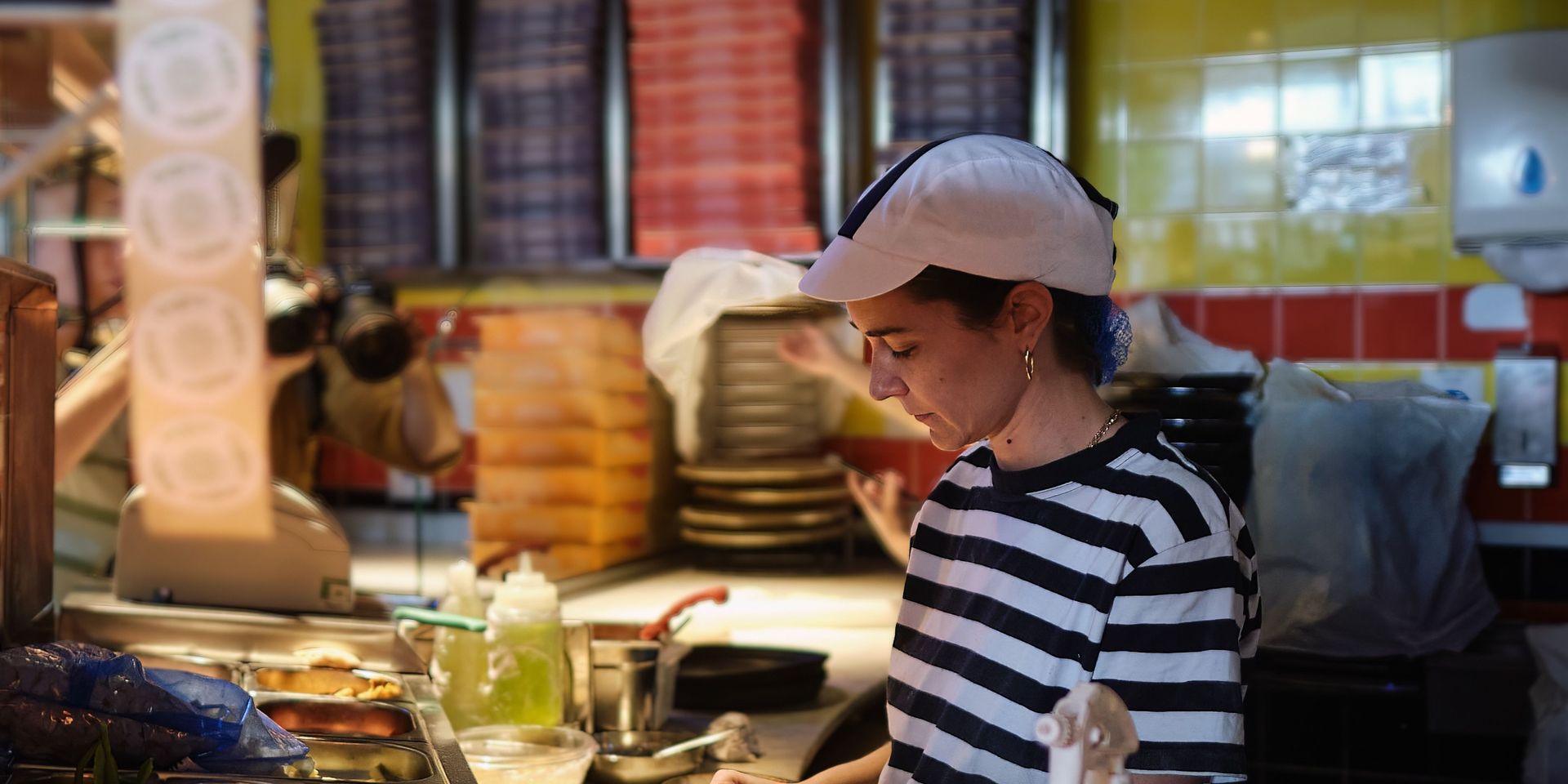The pizzaiolo must master the fundamental techniques of food preparation: dough making, ingredient measurement, baking control, and adherence to hygiene standards. They have a sharp sense of taste and precision, ensuring the consistency and quality of every pizza served.
Enduring and organized, the pizzaiolo knows how to work at a steady pace, especially during busy service periods. Speed, rigor, and coordination are essential to keep up with orders without sacrificing quality. Finally, teamwork and versatility are key skills, especially in temporary roles, where they may have to adapt to new kitchens, ovens, and teams.
What training is needed to become a pizzaiolo?
The pizzaiolo profession is accessible without a specific diploma, but a culinary background is a strong advantage. The CAP Cuisine or CAP Agent Polyvalent de Restauration provides the essential foundations of the job.
There are also short professional courses dedicated to pizza making, offered by culinary schools, trade chambers, or private institutions. These programs teach kneading, fermentation, topping preparation, baking techniques, and hygiene standards.
Those in career retraining or temporary work can follow these programs to quickly develop technical skills and find restaurant opportunities more easily. However, hands-on experience remains the best way to fully master the craft.
What is a pizzaiolo’s salary?
A pizzaiolo’s salary depends mainly on their experience, the size of the establishment, and the type of service provided. At the start of their career, a professional generally earns around the minimum wage, about €1,801.80 gross per month for a 35-hour week.
With a few years of experience, earnings can reach €2,000 to €2,300 gross per month. Head pizzaiolos or professionals working in high-end restaurants can earn €2,800 to €3,000 gross per month, or even more when supervising a team or managing production.
Why become a pizzaiolo?
Becoming a pizzaiolo means choosing a profession that is both passionate, creative, and hands-on, where every service is a new opportunity to bring joy. It’s a job that combines manual skill with culinary instinct, valuing both precision and speed.
This profession attracts those who love its artisanal nature, working with simple, authentic ingredients to create a universally beloved dish. The pizzaiolo develops a genuine culinary craft, recognized and transmissible, while staying close to the customer and the pleasure of cooking.
The role is quickly accessible and offers great opportunities for growth. With experience, a pizzaiolo can become a station chef, trainer, or even open their own pizzeria. In temporary work, the profession allows them to discover different establishments, experiment with various baking styles, and enhance their technique before specializing or starting their own business.
What are the career opportunities for a pizzaiolo?
The pizzaiolo profession offers real advancement prospects for motivated profiles passionate about gastronomy. After a few years of experience, a pizzaiolo can become a head pizzaiolo, responsible for coordinating the kitchen, training apprentices, and overseeing the quality of pizzas produced.
With greater responsibility, they may move into a production manager or restaurant manager role, overseeing operations such as supply management, cost control, service organization, and team supervision.
Some choose the path of entrepreneurship, opening their own pizzeria, food truck, or fast-food concept. Others move into training, passing on their expertise to future cooks and pizza makers.



